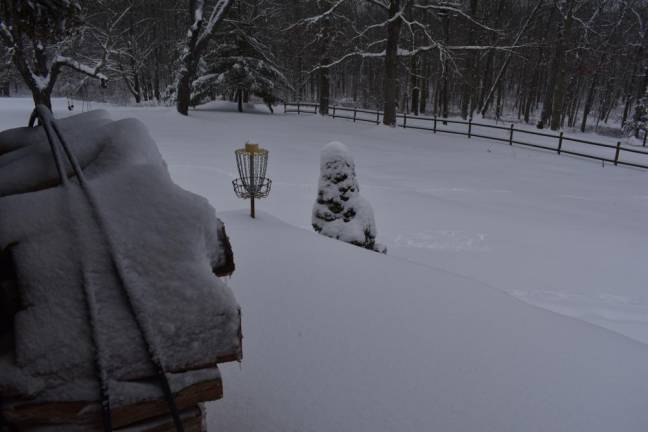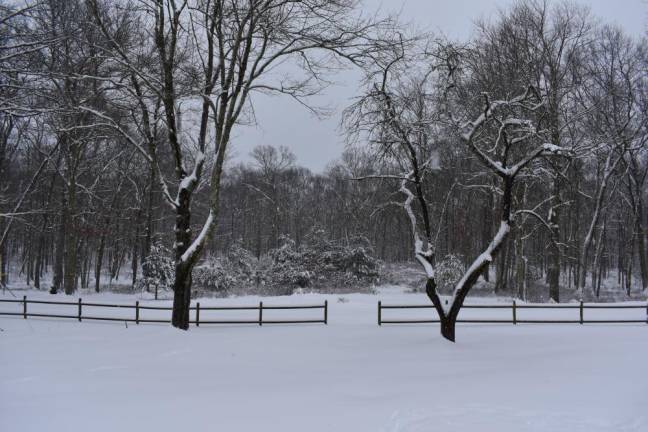Be prepared to hunker down for blizzard season
What to have on hand in case of loss of heat and power


“In preparation for the winter storm season, I strongly encourage the public to create an emergency kit with essentials like water, non-perishable food, first aid supplies, and important documents,” said Orange County Commissioner of Emergency Services Peter Cirigliano.
“Develop a family communication plan, stay informed through weather updates, and secure outdoor items to prevent damage. Motor vehicle accidents drastically increase during inclement weather. For the safety of you and your family, please remember to avoid unnecessary travel on our roadways during hazardous weather conditions.”
Use caution and read all directions when using alternate heating sources such as kerosene heaters, wood and pellet stoves, and fireplaces, and make sure that they are in good working condition, added Orange County Executive Steven Neuhaus. Proper ventilation is critical and generators should only be operated outdoors.
A primary concern during winter storm season is the potential loss of heat, power and telephone service, resulting in a shortage of supplies if storm conditions continue for more than a day. Always have the following items available at home, Cirigliano advises:
- Flashlight(s) and extra batteries
- Battery-powered portable radio or NOAA Weather Radio to listen to weather forecasts and receive emergency information
- A three-day supply of food that does not require cooking or refrigeration, eg. canned goods, dried fruits, protein bars
- Bottled water (one gallon per person per day)
- A one-week supply of essential medicines / baby items
- First aid kit and supplies
- Extra blankets and sleeping bags
- Fire extinguisher and smoke detector
- Ice Melt and snow shovels
- At least half a tank of gas in all vehicles and check and/or change windshield wipers
Ready to go
Before a winter storm, gather a Go-Kit, advises the Red Cross. Your Go-Kit should include at least three days of supplies you can carry with you if you need to go somewhere else to stay warm. Include critical backup batteries and chargers for your devices.
Know where you will go if your home becomes too cold, whether a friend’s house, public library or a warming center.
If you venture outside, dress properly in water-resistant boots and layers. Keep your nose, ears, cheeks, chin, fingers and toes covered. These areas are the first to be at risk for frostbite, according to the Red Cross.
“I also remind all to check on our elderly neighbors, friends and relatives to make sure that they have the supplies and medications they may need,” said Neuhaus.
In the event of a power or heat outage, find up-to-date shelter information by calling the United Way’s 2-1-1 service.
Subscribe to NY-ALERT, New York State’s all-hazards alert and notification system, at alert.ny.gov or by calling 1-888-697-6972.